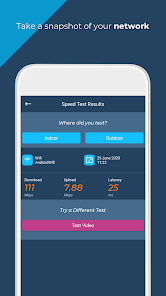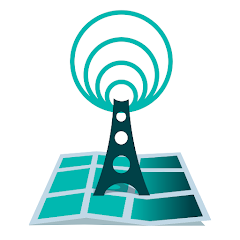4g speed test Are you tired of waiting for web pages to load or videos to buffer? Are you frustrated with sluggish internet speeds that seem to drag down your productivity and enjoyment? Well, my friend, it’s time to put your 4G network to the test! In this blog post, we will dive into the world of 4G speed tests and uncover the best tools available in the market. Get ready to unleash the true power of your internet connection and say goodbye to frustratingly slow browsing experiences. Fasten your seatbelts because we’re about to take off on a speedy journey through the world of 4G speed testing!

Importance of Fast Internet Connection
In today’s digital age, having a fast internet connection is no longer just a luxury, but a necessity. Whether you’re streaming your favorite TV shows and movies, video chatting with loved ones, or working from home, a speedy internet connection can make all the difference in your online experience.
First and foremost, fast internet allows for seamless streaming without those frustrating buffering pauses that disrupt our binge-watching sessions. With a reliable and speedy connection, you can enjoy high-quality videos without any interruptions.
Fast internet is also crucial for online gaming enthusiasts. Gamers rely on quick response times to stay competitive in multiplayer games. A slow connection can result in lagging gameplay and missed opportunities.
For remote workers or students attending virtual classes, a fast internet connection ensures smooth video conferencing without glitches or delays. It enables us to collaborate effectively with colleagues and participate actively in discussions.
Moreover, fast internet speeds are necessary for downloading large files quickly. Whether it’s software updates or important documents needed for work or school projects, waiting hours for downloads to complete can be incredibly frustrating.
Fast internet enhances overall productivity by allowing us to multitask efficiently. We can easily switch between applications and websites without experiencing significant lag time.
In conclusion (conclusion not required), having a fast internet connection has become essential for various aspects of our daily lives – from entertainment to work and education. By investing in high-speed 4G connectivity (keyword placement), we ensure that we have the best online experience possible!
Factors that Affect Internet Speed
Factors that Affect Internet Speed
When it comes to internet speed, there are several factors at play that can either enhance or hinder your browsing experience. Understanding these factors can help you identify any issues and make necessary adjustments to optimize your 4G connection.
One of the key factors that affect internet speed is the distance between your device and the nearest cell tower. The closer you are to a tower, the stronger and faster your signal will be. Additionally, obstacles such as buildings or trees can interfere with the signal strength and result in slower speeds.
Another factor to consider is network congestion. During peak usage times when many people are online simultaneously, such as evenings or weekends, the congestion on the network can cause a decrease in internet speed for everyone connected.
The type of device you’re using also plays a role in determining your internet speed. Older devices may not support higher bandwidths offered by newer technology, resulting in slower speeds. Similarly, if multiple devices are connected to your 4G network simultaneously, each device will share the available bandwidth which could impact overall speed.
It’s important to consider any potential software or hardware issues on your device that may be affecting its performance. Outdated operating systems or malware infections can significantly slow down your internet speed.
By understanding these factors and taking appropriate measures like finding areas with better reception or upgrading old devices, you’ll be able to maximize your 4G internet speed for an optimal browsing experience without interruptions.
Top 4G Speed Test Tools in the Market
When it comes to testing the speed of your 4G internet connection, there are several tools available in the market that can provide accurate and reliable results. These tools not only help you measure your current internet speed but also give insights into how well your service provider is delivering on their promises. Here are some of the top 4G speed test tools that you can use:
1. Ookla Speedtest: Known for its simplicity and accuracy, Ookla Speedtest is one of the most popular speed test tools out there. It provides detailed information about your download and upload speeds, as well as latency and jitter.
2. Fast.com: Developed by Netflix, Fast.com focuses solely on measuring download speeds. It’s a great tool if you just want to quickly check how fast or slow your internet connection is when it comes to streaming content.
3. OpenSignal: In addition to conducting speed tests, OpenSignal also offers a comprehensive coverage map that shows you where 4G signal strength is strongest in your area.
4. Sensorly: Similar to OpenSignal, Sensorly provides coverage maps along with speed test capabilities. It allows users to contribute data about network performance in different locations worldwide.
These are just a few examples of the many 4G speed test tools available in the market today. Each tool has its own unique features and advantages, so it’s worth trying out different ones to see which works best for you!
How to Conduct a 4G Speed Test and Interpret Results
Now that you understand the importance of a fast internet connection and have learned about the factors that can affect your 4G speed, it’s time to dive into how to conduct a 4G speed test and interpret the results. Thankfully, there are several reliable tools available in the market that can help you with this process.
The first step is to choose a reputable 4G speed test tool. Some popular options include Ookla’s Speedtest, Fast.com by Netflix, and OpenSignal. These tools provide accurate measurements of your download and upload speeds, as well as information about latency and network coverage.
To conduct a test, simply visit one of these websites or download their respective mobile apps on your smartphone. Once you’re ready, hit the “Start Test” button and wait for the results to populate. The tool will measure your connection’s performance by sending data packets back and forth from their servers.
Once the test is complete, you’ll be presented with various metrics such as download speed (how quickly data is transferred from the server to your device), upload speed (the reverse process), latency (the delay between sending a request and receiving a response), and jitter (variations in latency). You may also see metrics related to network quality such as signal strength or coverage maps.
Interpreting these results can be quite straightforward. Generally, higher download and upload speeds indicate better overall performance. Latency should ideally be low for smooth browsing experiences or online gaming sessions. Jitter measures stability – lower values are preferable for consistent connectivity.
Keep in mind that different activities require varying internet speeds; streaming high-definition videos would demand faster speeds compared to casual web browsing.
It’s important not only to run tests regularly but also at different times of day since network congestion during peak hours could impact results significantly.
Understanding how to conduct a 4G speed test allows you to monitor your internet connection’s performance accurately. Armed with this knowledge, you can identify any potential issues and make informed decisions to optimize your internet experience.
Tips for Improving Your 4G Internet Speed
Tips for Improving Your 4G Internet Speed
1. Check your signal strength: Poor signal strength can greatly affect your internet speed. Make sure you are in an area with strong 4G coverage, and if not, consider moving to a different location or using a signal booster.
2. Close unused apps and tabs: Running multiple apps or having too many browser tabs open can hog valuable bandwidth and slow down your internet speed. Close any unnecessary applications and tabs to free up resources.
3. Clear cache and cookies: Over time, your device’s cache and cookies can accumulate, which can slow down your browsing experience. Regularly clear these files to optimize your internet speed.
4. Update your software: Outdated operating systems or apps may not be optimized for the latest network technologies, leading to slower speeds. Keep all of your software up-to-date to ensure maximum performance.
5. Limit background data usage: Some apps consume data even when you’re not actively using them, which can impact internet speed on a 4G connection. Disable background data usage for non-essential apps or set limits on their data consumption.
6. Use Wi-Fi whenever possible: If available, connect to a reliable Wi-Fi network instead of relying solely on 4G connectivity. This will help conserve mobile data while enjoying faster download speeds.
7.
Stop automatic updates/downloads: Automatic updates and downloads can eat up bandwidth without you realizing it until it affects your browsing experience negatively.you should disable automatic updates/downloads when connected via cellular data.
By following these tips, you can enhance the performance of your 4G connection and enjoy faster internet speeds on-the-go! Remember that each tip may have varying effects depending on the specific circumstances of your device and network conditions
Conclusion: Choosing the Best 4G Speed Test for You
Conclusion: Choosing the Best 4G Speed Test for You
When it comes to testing your 4G internet speed, having reliable and accurate tools is crucial. With so many options available in the market, it can be overwhelming to choose the best one for you. However, by considering your specific needs and preferences, you can find a 4G speed test tool that suits you perfectly.
Before making a decision, take into account factors such as ease of use, accuracy of results, availability across different devices and operating systems, additional features like ping test or latency measurement, and customer reviews. Reading user testimonials and comparing different tools will give you a better understanding of their performance.
Remember that no single speed test tool is perfect for everyone. Your choice may depend on whether you prioritize simplicity or advanced features; whether you need precise measurements for gaming or streaming; or whether compatibility with mobile devices is essential.
Some popular options to consider include Ookla’s Speedtest.net which offers an intuitive interface and detailed results analysis; Fast.com from Netflix which focuses on measuring your download speed specifically for video streaming purposes; OpenSignal which provides comprehensive network coverage maps along with speed tests; and Meteor by Ookla which includes unique visualizations to make interpreting results easier.
Finding the best 4G speed test tool requires trial-and-error experimentation to see what works best in your specific situation. By regularly conducting tests using various tools and monitoring changes in performance over time, you can ensure that your internet connection remains fast and reliable.



